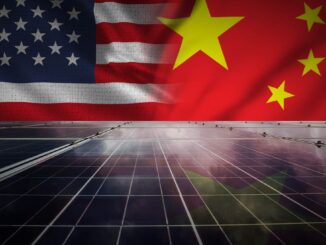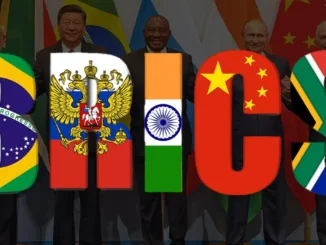
Energy News Beat Publishers Note: The good, bad and homely. The good thing to come out of the Texas disaster, it has brought our United States aging energy infrastructure, which is incapable of handling the new energy types being implemented, to the forefront of debates. The bad news: The Biden administration will be called upon to implement more infrastructure upgrades, and will not be able to get the materials. The homely is the biggest ugly baby in the room: National Security. While this problem has been brewing for decades, the inability to manufacture EV, batteries, electrical storage, new electrical equipment will impact every American. The sad part is that it will impact the disproportionally impacted communities even more. People forget about the most venerable when making policy decisions.
WASHINGTON—China is reportedly looking into curbing the export of rare-earth minerals to the United States, which may become a new source of friction between the two countries.
China’s Ministry of Industry and Information Technology in January proposed draft controls on the production and export of rare-earth minerals and provided 30 days for public comment.
During the comment period, industry executives were asked to assess how U.S. and European companies could be affected if Beijing decided to cut rare-earth exports during a bilateral dispute, the Financial Times reported, citing people involved in the discussions.
“The government wants to know if the U.S. may have trouble making F-35 fighter jets if China imposes an export ban,” a Chinese government adviser told the Financial Times.
Industry executives were also asked to comment on how quickly the United States could secure rare earths from alternative suppliers or increase its production capacity.
Rare earths are 17 metals that are required in the manufacturing of airplanes, computers, cell phones, electricity generation and transmission systems, and advanced electronics.
China controls about 80 percent of the global supply of rare-earth minerals and sees its dominance as leverage that can be used against the West. It’s not clear whether China can really weaponize rare-earth exports, as it could backfire by forcing other countries to increase their own production capacity.
The timeline to increase production capacity at home “could in fact be very, very short” with more government support and industry innovation, according to Pini Althaus, CEO of USA Rare Earth, a mining company that is developing the Round Top rare-earths deposit in Texas.
“The writing has been on the wall for decades, and now we are seeing first-hand why we’ve been raising the alarm that China’s dominance over the rare earth and critical minerals industry is a highly volatile geopolitical concern,” Althaus said in a statement.
“To counter the effort of the CCP to put a chokehold on defense and other high-tech metals, the U.S. and its allies must continue to invest in this space.”
Former President Donald Trump last year signed an executive order to expand and strengthen domestic mining of rare earths and other critical minerals.
“The United States now imports 80 percent of its rare earth elements directly from China, with portions of the remainder indirectly sourced from China through other countries,” Trump stated in the executive order. “In the 1980s, the United States produced more of these elements than any other country in the world, but China used aggressive economic practices to strategically flood the global market for rare earth elements and displace its competitors.”
Last year, a bipartisan group of House and Senate lawmakers also introduced proposals aimed at reducing U.S. dependence on China by providing tax incentives for the rare-earths industry.
“The global pandemic has highlighted our reliance on China to meet our demand for critical minerals that are used in products such as electric and hybrid cars, computers, and military equipment,” Rep. Henry Cuellar (D-Texas) told The Epoch Times.
“It is essential for our national security and economic interests that we reduce our nation’s dependence on China for rare earth minerals. I co-sponsored the RARE Act to incentivize domestic production and develop our own consistent supply chain. To remain a world leader in technological and military innovation, we must act.”
The White House didn’t immediately respond to a request from The Epoch Times for comment.
President Joe Biden, during his election campaign, pledged to “accelerate innovation in supply-chain resilience” and address “issues like reliance on rare-earth minerals.”
Epoctimes –



